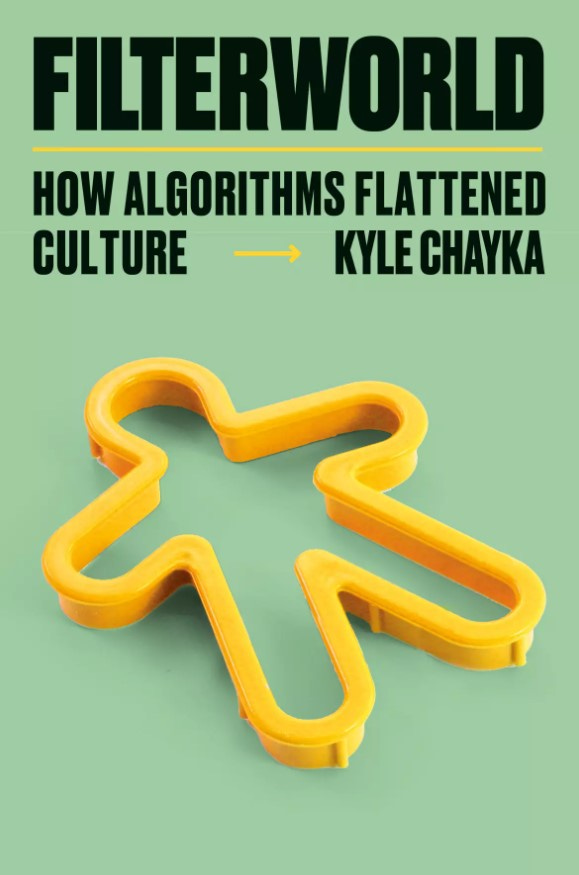My final piece as a staff writer for the Los Angeles Times is a review of Kyle Chayka’s new book, “Filterworld”:
Chayka’s view is that the proliferation of recommendation algorithms on services like Netflix, Spotify and TikTok since the 2010s have created a cultural world that’s flatter, more homogenous and more passively consumed. …“In place of the human gatekeepers and curators of culture, the editors and DJs, we now have a set of algorithmic gatekeepers,” Chayka writes.
A lot of the book is about good taste and how tech sands it down. You’ll probably be a more interesting person if you log off Instagram.
However, I concluded that unplugging yourself has its limits when you’re still living in the world Instagram has built for us:
But trying to find some neighborhood of your city that hasn’t been impacted in some way by an internet platform is like searching for a corner of Earth untouched by climate change. Google and Waze have changed cities’ traffic patterns; Yelp directs eaters to some restaurants over others, influencing which ones close and which survive; Spotify playlists are running in the the restaurant you picked; TikTok fashion trends are reflected in the clothes of the people you see; people have transformed their own faces in pursuit of homogenous Instagram beauty standards.
The digital is the real. Recommendation algorithms, the companies that control them and the crowds that use them have already recreated the world. What matters most isn’t an unattainable sense of individual authenticity — you’re not some Philip K. Dick cyborg who can sync up and cycle back to factory settings, purging the hard drive to compress yourself just small enough to slip through the firewall of human history. What’s achievable for proper people is a better collective competency about what the platform economy does to us and what it wants us to do next. That’s when we can choose to do something different, if we want. Call it a matter of taste.
You can read the rest of the review, buy Kyle’s book here and follow
on Substack.


Interesting review, though I agree with the author (at least with respect to the specific points you note).
Our culture has flattened, our debate is uninformed and superficial.
Algorithms function as entertainment and pseudo-culture. Their impact on developing brains can be expected to perpetuate a society unable to function without this addictive element.
Unless the addiction is broken, the cycle of affiction and decimation of intellect and culture will continue.
It's one thing to use tools for convenience, quite another to spend 4-6 hours a day mindlessly scrolling or reactively posting.
There's a world of literature, art, philosophy, science, but it will languish to the extent we continue to turn first to an algorithmic hit.